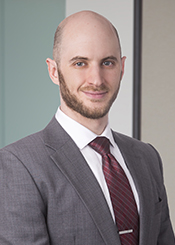


Tax practitioners are the gatekeepers to the country’s tax system and are subject to standards and penalties designed to ensure that practitioners give taxpayers clear and impartial advice about how to comply with the tax law. The Office of Professional Responsibility is charged with enforcing these standards and penalties and the IRS recently established the Office of Promoter Investigations to focus on practitioners who promote abusive tax transactions. This panel discusses tax
practitioner standards and how the IRS enforces those standards.

Jonathan Black
Caplin & Drysdale
Associate
(212) 379-6000
Jonathan R. Black is an Associate in the Tax Controversy practice group. Prior to private practice, Mr. Black served as an attorney with the Office of Chief Counsel for the Internal Revenue Service, where he defended the IRS in Tax Court, drafted regulations and other published guidance, and advised the IRS and the Department of Justice on a myriad of legal issues. He also provided IRS attorneys training on administrative law and legal ethics.
Throughout its rich history, NYUSPS has met the needs of the students and the professional communities it serves. From its early years of training returning World War II veterans to fulfill the nation’s urgent need for skilled technical workers, it has evolved into a professional education powerhouse that offers 19 graduate degrees, 13 bachelor’s degrees, four associate’s degrees, and a plethora of non-degree courses




